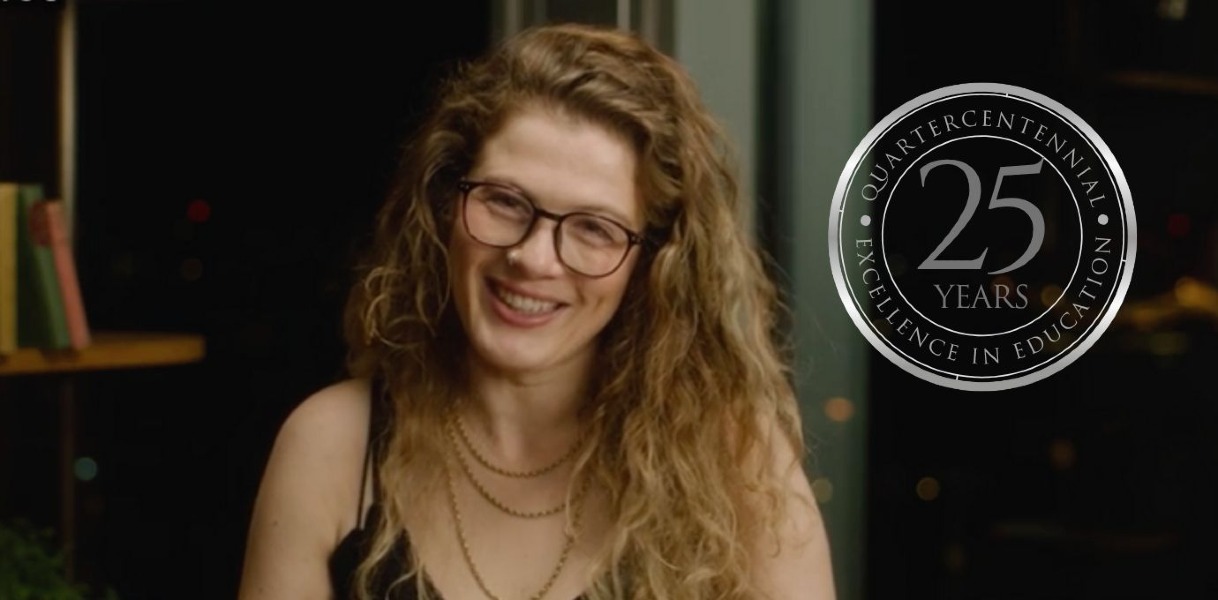Earlier this year, clients, tutors, staff and their families gathered in London from across the globe to celebrate the 25th Anniversary of Tutors International.
As guests arrived, the room buzzed with the sharing of stories and lived experiences as private tutors. ‘Education’ was very much the thread connecting everyone there.
With such a vast resource of educational insights to hand, we invited tutors to describe their takeaway thoughts and experiences on education, and private tutoring in particular.
Relevant to the party’s theme was the question: ‘What does the word ‘education’ mean to you?’ We know it is a familiar, frequently used word but its definition can look very different depending on whether you’re teaching or learning.
We asked Evie, one of our tutors who specialises in philosophy, what she thought the word 'education' meant. She gave us this perspective:
“... As a tutor, working flexibly and creatively, education can become something that is much more exciting than it is within standard, straightforward education systems.
“To me, education is all about helping people understand in ways they wouldn’t be able to otherwise. It’s about finding inroads that work with the way that people think already. It’s about making things fun that otherwise would be oppressive or frightening.”
Charlie, another Tutors International tutor, recalled a notice he once saw in a bookshop: ‘Education is replacing an empty mind with an open one’.
It appealed to him because people tend to think of education as a passing on of information, but Charlie believes the most important aspect was more to do with social values, interacting with other people, and being open to new ideas and ways of thinking.
With these thoughts from our tutors in mind, we researched the broader view of what the word ‘education’ means from the perspective of both educator and student:
The educator's vision
For tutors, teachers, and parents, education represents the building of solid foundations that enable a child to grow in ability and give them the confidence to progress in life and become whatever they wish to be.
As both Evie and Charlie considered, education is so much more than a focus on learning and exams. It’s the process of nurturing a child’s inquisitive mind, taking their raw curiosity and shaping it into understanding. Education is the cultivation of critical thinking, the drawing out of a child’s creativity and personality.
The student's perspective
For students, research shows that ‘education’ can mean a challenging combination of the excitement of learning and discovery coupled with the weight of obligation and pressure.
Each improved grade and every moment of sudden understanding represents a triumph. But success can be coupled with the weight of expectation, the pressure of assessments and exams, and frustration when concepts are not quickly grasped.
The complexity of definition
As illustrated, the meaning of the word education is tricky to pin down and depends on the perspective. Returning to the party, it was clear that for the 100 or so people celebrating the 25th anniversary of Tutors International that day, the word education meant the fulfilment of their ambition and dedication to enhance a child’s life through the delivery of knowledge with passion.
For the tutors gathered that day, education was personal and specific. Their definition of ‘education’ was shaped and validated by the child in front of them.
As founder of Tutors International, Adam Caller reflected on what 25 years of elite tutoring have taught him about the true nature of education:
“In 25 years of placing tutors around the world, I’ve seen time and again that education is most powerful when it’s personalised. Education is not about ticking curriculum boxes, but is about awakening a love of learning in a child, on their terms, in their individual context.”

